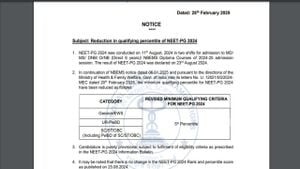On February 24, 2025, the United States shocked its European allies and the world by aligning with Russia during unprecedented votes at the United Nations concerning the conflict in Ukraine. This significant shift from the Biden administration’s previous strong support for Kyiv marks a radical change in US foreign policy, as the alignment has genuine repercussions not just for Ukraine, but for global diplomatic relations as well.
On the third anniversary of Russia's invasion of Ukraine, the US voted alongside Russia and countries such as Belarus and North Korea against a resolution presented by Ukraine and its European allies at the UN General Assembly. The resolution called for the immediate withdrawal of Russian troops and reaffirmed Ukraine’s territorial integrity; it was adopted with 93 votes for, 18 against, and 65 abstentions. Surprisingly, the US found itself among those opposing the text, with the Russian ambassador, Vassili Nebenzia, denouncing it as merely "an anti-Russian piece of paper." This marked the first time since the onset of the conflict where the US's support for Ukraine seemed significantly weakened.
Meanwhile, the US also submitted its own resolution, which focused on calling for the speedy end of the conflict without addressing Ukraine's territorial integrity. This proposal was described by several European representatives as excessively conciliatory toward Moscow, prompting heavy amendments before it was eventually passed with 93 votes for and 8 against, and with 73 abstentions. The statement from the interim US ambassador, Dorothy Shea, who claimed, "This resolution places us on the path to peace," did little to assuage the concerns of European allies who had viewed the initial proposal as undermining Ukraine.
At the Security Council, the US's victory was more pronounced as their resolution, stripped of European amendments condemning Russian aggression, was adopted with 10 votes for and no votes against. The significance of this vote was palpable; several diplomatic representatives, including Barbara Woodward, the UK's ambassador, expressed their dismay over the lack of accountability on aggressors, asserting, "This war is illegal, a clear violation of the UN Charter," and reminding members of the council about the importance of upholding international law.
With this strategic pivot, experts are voicing concern over the possibility of Washington and Moscow gaining disproportionate influence over the future of Ukrainian diplomacy. Richard Gowan from the International Crisis Group elaborated, "The diplomats from Europe will be anxious as they see the US and Russia steering discussions on Ukraine, including potential agreements orchestrated by Trump and Putin. This double vote clearly indicates not just changes within the US's stance but potentially the redistribution of diplomatic power on the global stage."
The aftermath of the voting is prompting deep reflections within Ukraine and its allies as they brace for future negotiations. Political analysts have noted the shifting dynamics and questioned how much support Ukraine can realistically count on from the US moving forward. Maksym Jali, significant Ukrainian political commentator, remarked on social media, "I hope we all emerge from this confrontation between the American and Ukrainian presidents with the least damage possible. Ukraine cannot afford to lose US support at this juncture as the terms of any future peace agreement are being negotiated."
Despite these worrying trends, there is still resolve within Ukraine. An article from the taz newspaper highlighted, "With the rapprochement between Trump and Putin, the entire international community, viewing US foreign policy critically, acknowledges Ukraine's battle as one for freedom. The Ukrainian forces have repelled Putin's tanks; they will also withstand Trump's verbal onslaught."
This realignment within United Nations votes not only redraws the diplomatic map for the Ukrainian conflict but also poses questions about the future of NATO and Europe’s defense strategies. The urgent need for EU allies to bolster military support for Ukraine has been echoed repeatedly, with Kristi Raik from the Centre for Defence and Security urging for more arms to mitigate future aggressions: "Everyone should be aware of today’s number-one priority: Ukraine and Europe need more weapons to end this war and prevent the next attack."
The pressure is mounting on Europe as it must navigate the political fallout of America's diplomatic pivot under Trump. The discussions extending beyond just military support are imperative, as they highlight the delicate balance of maintaining unity among NATO allies, especially when the US stance is fracturing.
Moving forward, all eyes will be on how these changes within the geopolitical sphere will shape the course of the war and what this means for the rule of law on the international stage. The urgency for Ukraine to maintain its sovereignty is pressing, and as nations evaluate their positions, the specter of Trump’s influence looms large. This is not merely about the Ukraine conflict but about the future of how nations will interact and the alliances they choose to uphold.



